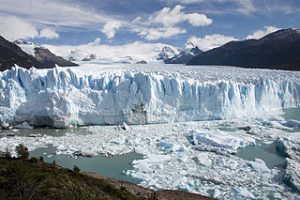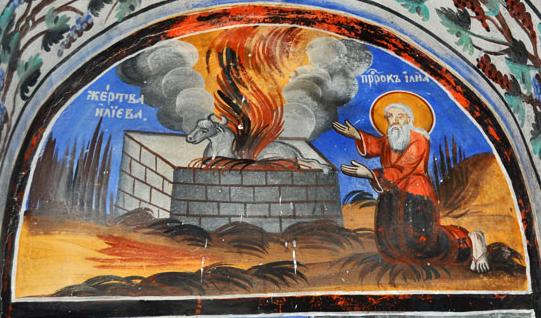Feared, Hated and Adored
March 12, 2011Research to Reality on TV
March 19, 2011 Check out a very interesting post by David Lappi on trends in global temperature: not just the last 100 years, but the last 10,000 years, the last 5 million years and the last 65 million years.
Check out a very interesting post by David Lappi on trends in global temperature: not just the last 100 years, but the last 10,000 years, the last 5 million years and the last 65 million years.
The two striking things about the trends shown are the huge shorter term natural variations (dwarfing recent ones) and the overall downward trend of the last 5,000 years or so.
A disturbing entry into the common wisdom in recent years has been the “precautionary principle”, basically the idea that if we can imagine some dire consequence of something, then we should do whatever is possible about it before the evidence fully justifies it. The problem with this “principle” is that it enshrines action (generally, of course, compulsory government action) in the absence of strong objective evidence. But arbitrary claims (i.e. claims made without valid objective evidence) are cognitively worthless, as they have no actual link to reality. To enshrine them as a principle demanding action is not only unjustified but dangerous. It is not only to look clear-eyed at the dire consequences of something we don’t know, but to not look at all at the consequences of the alternatives.
 And current climate science claims about what we’re doing to the climate and what we should do about it are, I fear, just arbitrary claims: simply because despite years of tweaking, the not only can’t predict anything, but can’t explain past variations in anything but the broadest generalisations. That is not knowledge: that is just the first baby steps of something that might become a grown-up science one day. Take another look at the graphs of past global temperatures: current climate science can’t even explain the long-term trends, let alone the shorter-term forest of spikes.
And current climate science claims about what we’re doing to the climate and what we should do about it are, I fear, just arbitrary claims: simply because despite years of tweaking, the not only can’t predict anything, but can’t explain past variations in anything but the broadest generalisations. That is not knowledge: that is just the first baby steps of something that might become a grown-up science one day. Take another look at the graphs of past global temperatures: current climate science can’t even explain the long-term trends, let alone the shorter-term forest of spikes.
Now we see the clear and present danger of the “precautionary principle”. We have known for years that we are overdue for another ice age, and a new ice age would have far more dire effects on us than a few degrees of warming. We can cope with the latter by work and rearrangements: the latter would cause widespread famine. And as Lappi points out, we are not only overdue for another one, but the trend ignoring the recent uptick is down, down, down. Even if the recent slight warming trend is caused by human emissions of carbon dioxide: maybe that’s what will hold the ice age at bay, at least long enough for technology to come up with other answers.
The only thing arbitrary claims deserve is the simple disarmament of proposing equal and opposite claims. So instead of dishonest one-sided questions about what we should do about “global warming”:
Human carbon dioxide emissions are causing global temperature rises: should we reduce our emissions to try to stop it?
Let’s also ask this equally (or more) valid reverse:
Human carbon dioxide emissions might protect us from another ice age. Should we simultaneously reduce our ability to cope, and hasten its onset, by severely degrading our economies in order to reduce them?
I wonder what the results of that poll would be?



